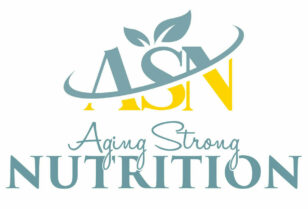
What is Vitamin B12
Vitamin B12 is a water-soluble B vitamin found only in foods of animal origin. Vitamin B12 contains the mineral cobalt, as a result
compounds with vitamin B12 activity are collectively referred to as cobalamins. There are 8 forms of B-12, four of which have vitamin
activity (cyanocabalamin, hydroxocabalamin, methylcobalamin, and adenosylcobalamin).
Why is Vitamin B12 important to your health?
Vitamin B12 is a vital component cellular metabolism, nervous system function, DNA and fatty acid synthesis, the production of red blood cell, and it is required for endogenous production of S-adenosyl-L-methionine (SAMe) which helps produce and regulate hormones and maintain cell membranes.
More information on specific disease prevention benefits of Vitamin B12
Cardiovascular Health
Although it is not fully understood yet whether vitamin B12 reduces the risk of cardiovascular disease, studies have indicated
vitamin B12 deficiency in people over 60 is a leading cause of high homocysteine levels, which has been highly correlated with
cardiovascular disease. (1).
Cognitive Function
Vitamin B12 deficiency is highly associated with cognitive function decline. Studies have demonstrated elevated blood
homocysteine levels, again associated with low vitamin B12, is a risk factor for Alzheimer’s disease and dementia. (1)
It is important to note, supplement of vitamin B12 does not appear to improve cognitive function in individuals who do not
have a vitamin B12 deficiency. (2)
Daily recommendation of Vitamin B12
Adults age 14+: 2.4 mcg/ day
Vitamin B12 Deficiency
Vitamin B12 deficiency is estimated to affect over 20% of older people; however, the symptoms are often subtle and unrecognized.
Common causes of deficiency include malabsorption of dietary vitamin B12 (> 60%), pernicious anemia (15%-20%), insufficient dietary intake (highly associated with a vegan diet) and impaired digestion. (3) The absorption of vitamin B12 from food involves two steps. Initially hydrochloric acid (HCl) in the stomach releases vitamin B12 from the protein it is attached to in food. Subsequently in the small intestine, vitamin B12 binds with the protein, intrinsic factor, made by the stomach and is absorbed by the body.
Supplement Recommendation
Vitamin B12 daily recommendation for adults is 2.4 μg/day.
About 10% – 30% percent of older people however are unable to absorb naturally occurring vitamin B 12; as a result, adults over the
age of 50 years are recommended to consume foods fortified with vitamin B 12 or take a vitamin B 12 supplement to meet their
requirement. (4)
High Risk Factors for Vitamin B12 deficiency in older adults:
• Atrophic gastritis, chronic inflammation of the stomach and small intestine causing decreased secretion of HCl
• Pernicious anemia, characterized by insufficient intrinsic factor production in the stomach
• Prolonged use of several medications including metformin and antiacid/acid blockers
• Stomach and intestinal disorders, such as Crohn’s disease and celiac disease
• Surgical procedures involving gastrointestinal tract, including gastric bypass surgery and removal of distal ileum
• Vegetarian and vegan diets
Symptoms of Vitamin B12 Deficiency
• fatigue & weakness
• depression
• sore tongue
• impaired memory & confusion
• numbness and tingling in hands and feet
• loss of balance
Irreversible nerve damage can occur if vitamin B12 deficiency is not treated (1)
References:
- Clarke R. B-vitamins and prevention of dementia. Proc Nutr Soc. 2008 Feb;67(1):75-81. doi: 10.1017/S0029665108006046. PMID: 18234134.
- Dangour, A.D., Allen, E., et al, Effects of Vitamin B-12 Supplementation on Neurologic and Cognitive Function in Older People: A Randomized Controlled Trial, Am J Clin Nutr, 2015 Sep;102(3):639-47
- Andrès E, Loukili NH, Noel E, et al. Vitamin B12 (cobalamin) deficiency in elderly patients. CMAJ. 2004;171(3):251-259. doi:10.1503/cmaj.1031155
- Institute of Medicine (US) Standing Committee on the Scientific Evaluation of Dietary Reference Intakes and its Panel on Folate, Other B Vitamins, and Choline. Dietary Reference Intakes for Thiamin, Riboflavin, Niacin, Vitamin B6, Folate, Vitamin B12, Pantothenic Acid, Biotin, and Choline. Washington (DC): National Academies Press (US); 1998. 9, Vitamin B12. Available from: https://www.ncbi.nlm.nih.gov/books/NBK114302/
